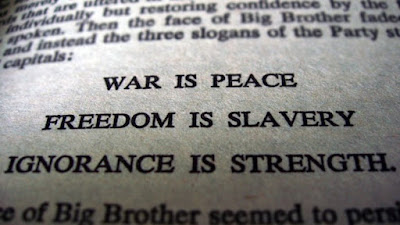Democracy means that my ignorance is just as good as your knowledge.
— Isaac Asimov
I've had it with the truthies, trash and trivia that's vying for my overtaxed attention.
It's time for all good people to call a halt to America's romance with anti-intellectualism—the willful "dismissal of science, the arts, and humanities and their replacement by entertainment, self-righteousness, ignorance, and deliberate gullibility," as executive coach Ray Williams puts it.
Once intriguing, the big news sites and social media networks have become cyber cesspools.
My New Year's resolution: to boycott them.
Worse, I resent being told the "real" reason was adultery, when in fact it was low audience share.
The last straw was a click-bait headline that dogged me yesterday: "The Real Reason 'Bewitched' was Cancelled."
I don't need—or care—to know why ABC executives scrapped a TV sit-com 46 years ago.
It's time for all good people to call a halt to America's romance with anti-intellectualism—the willful "dismissal of science, the arts, and humanities and their replacement by entertainment, self-righteousness, ignorance, and deliberate gullibility," as executive coach Ray Williams puts it.
We should take no pride in the fact Americans choose to be gullible and uninformed.








